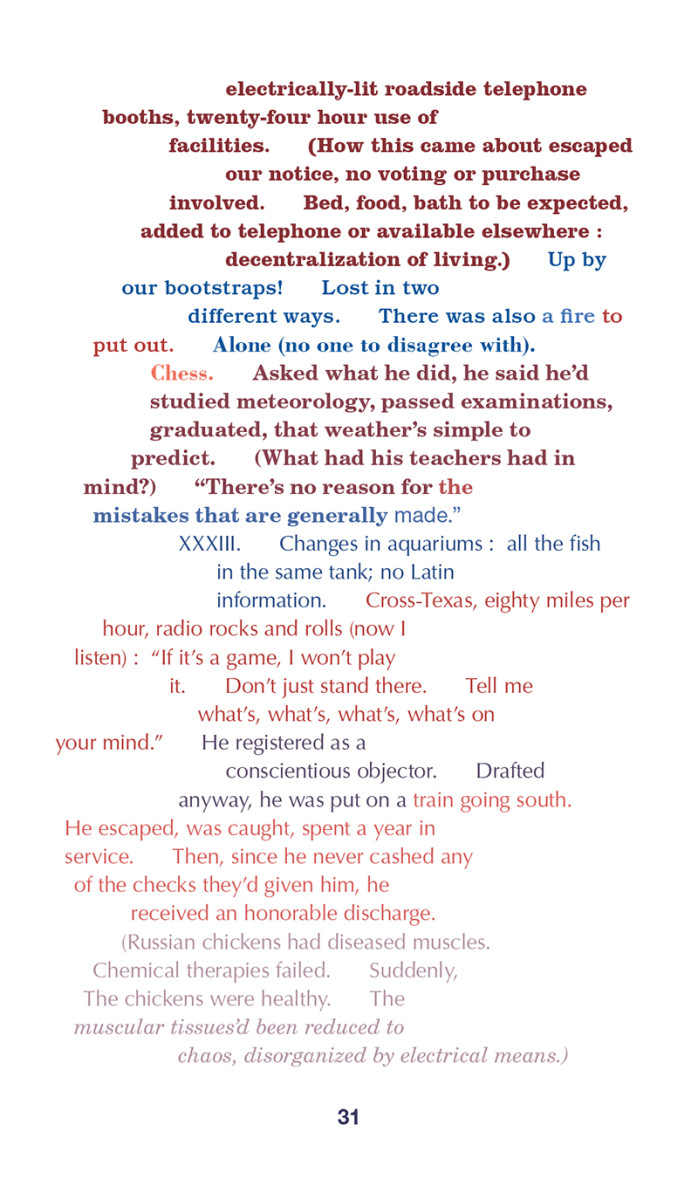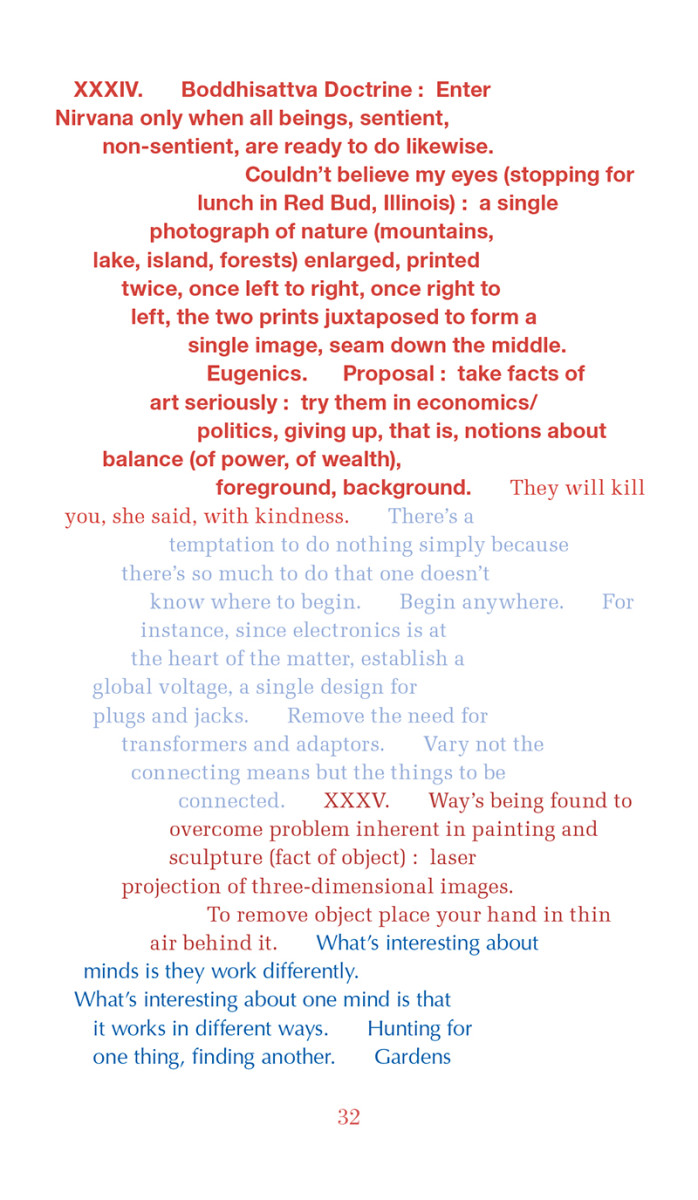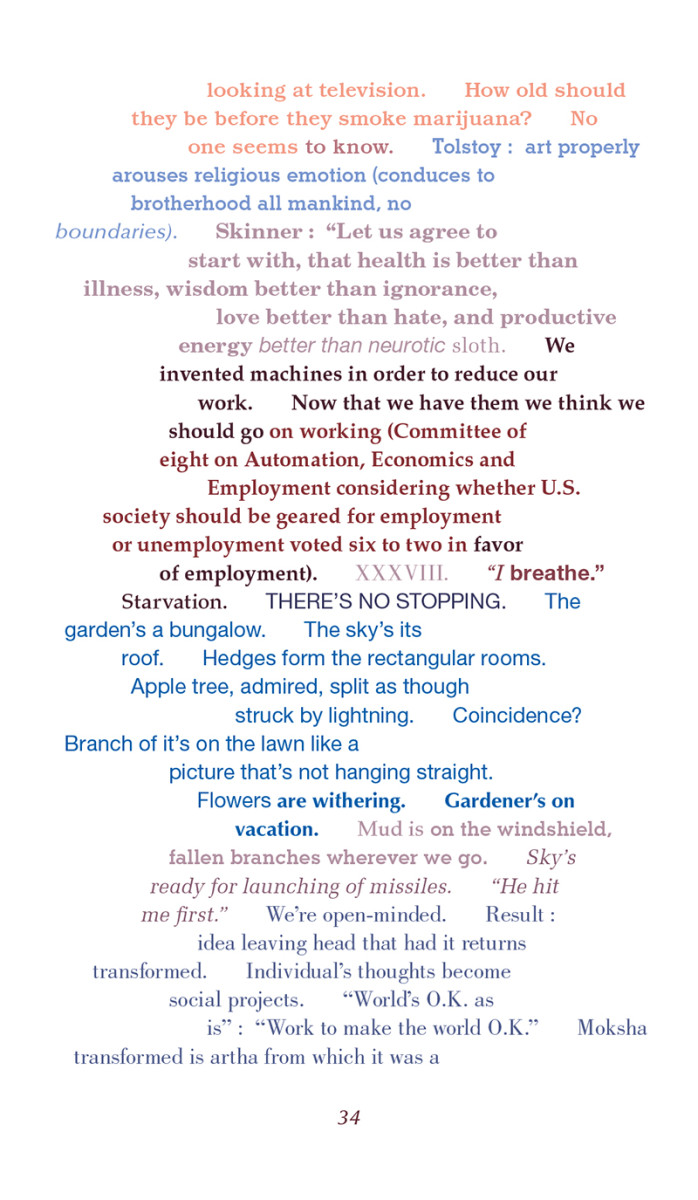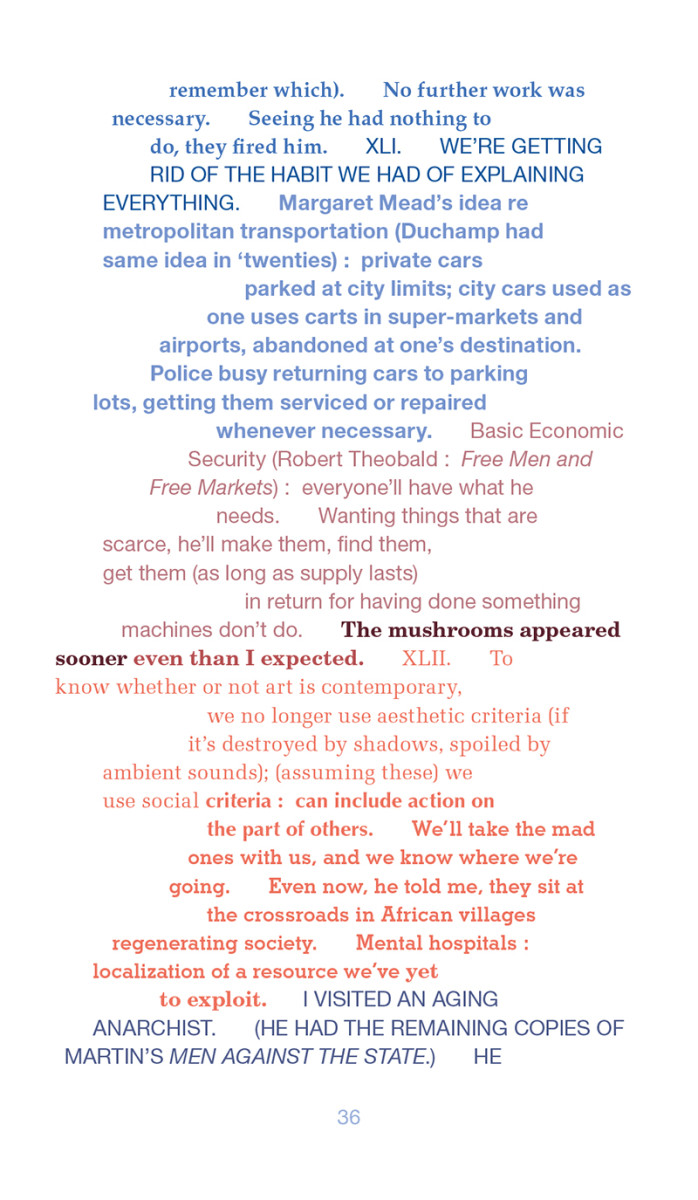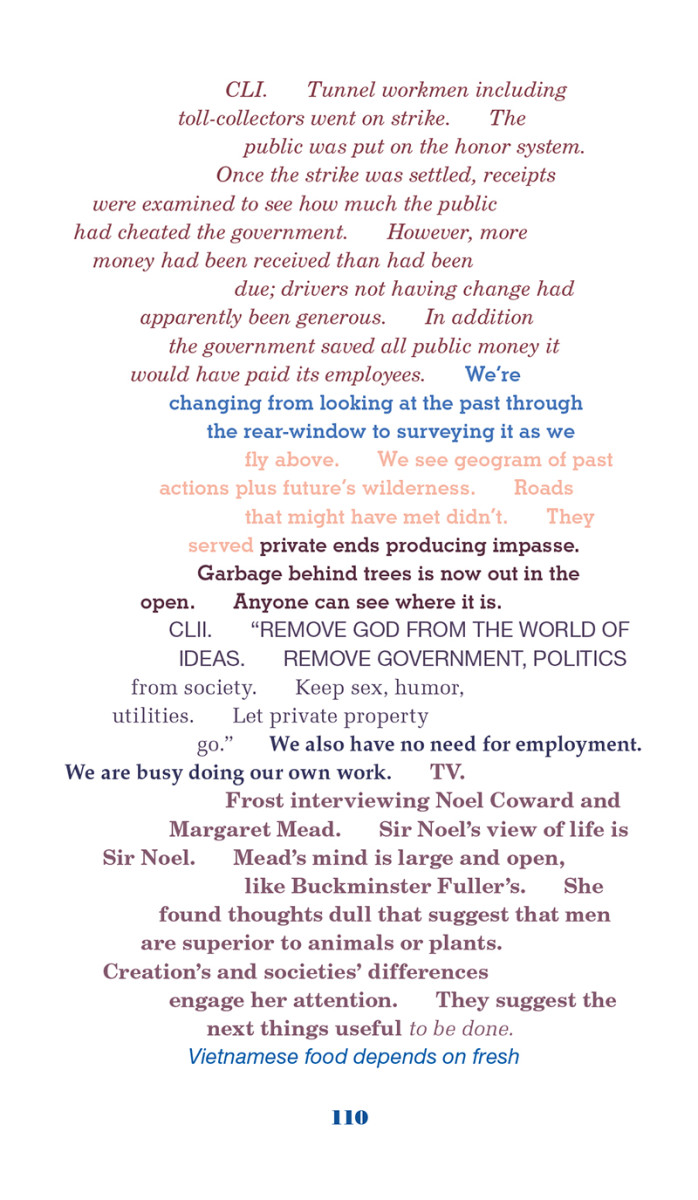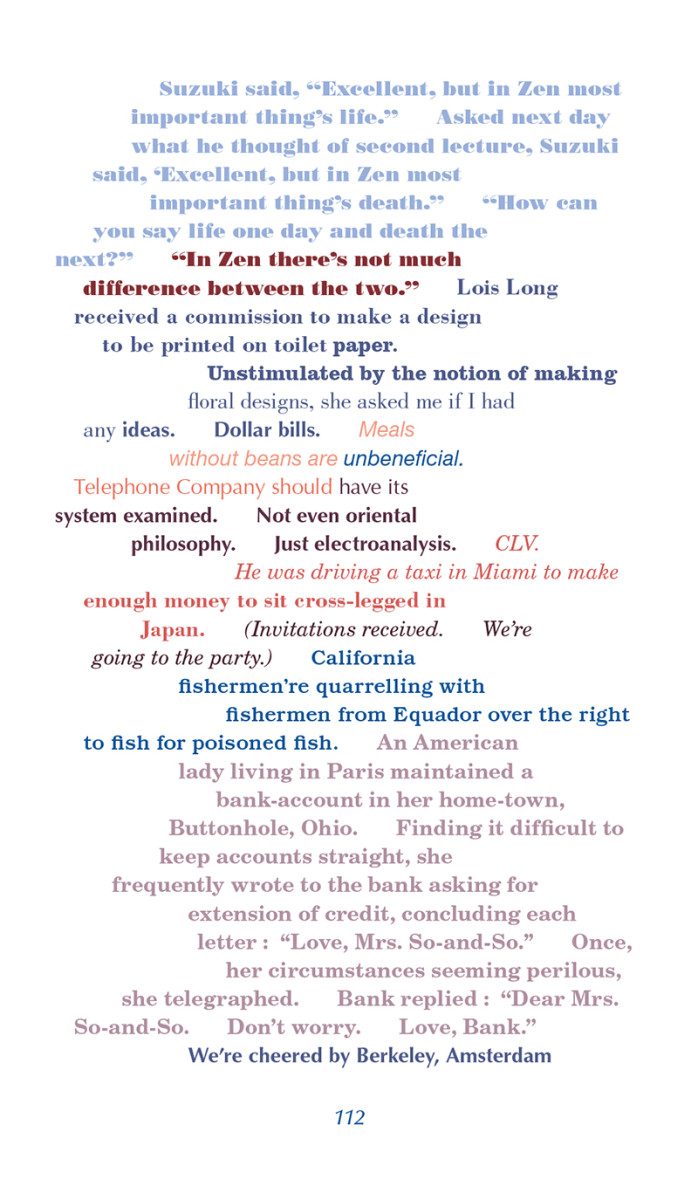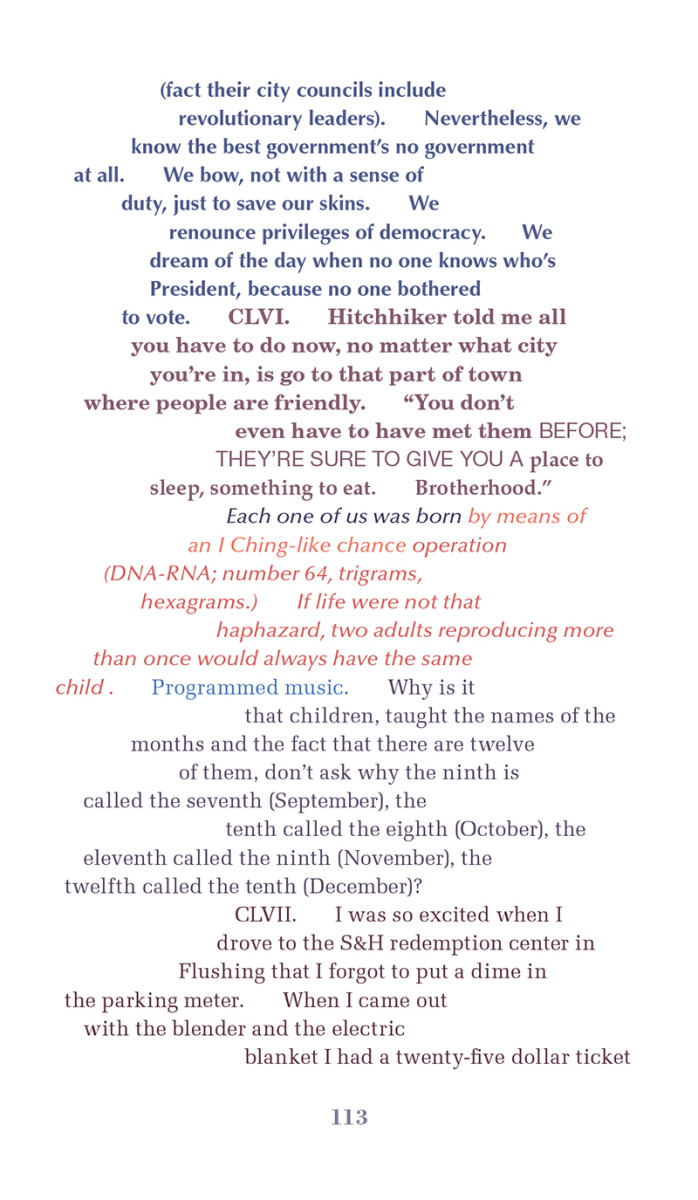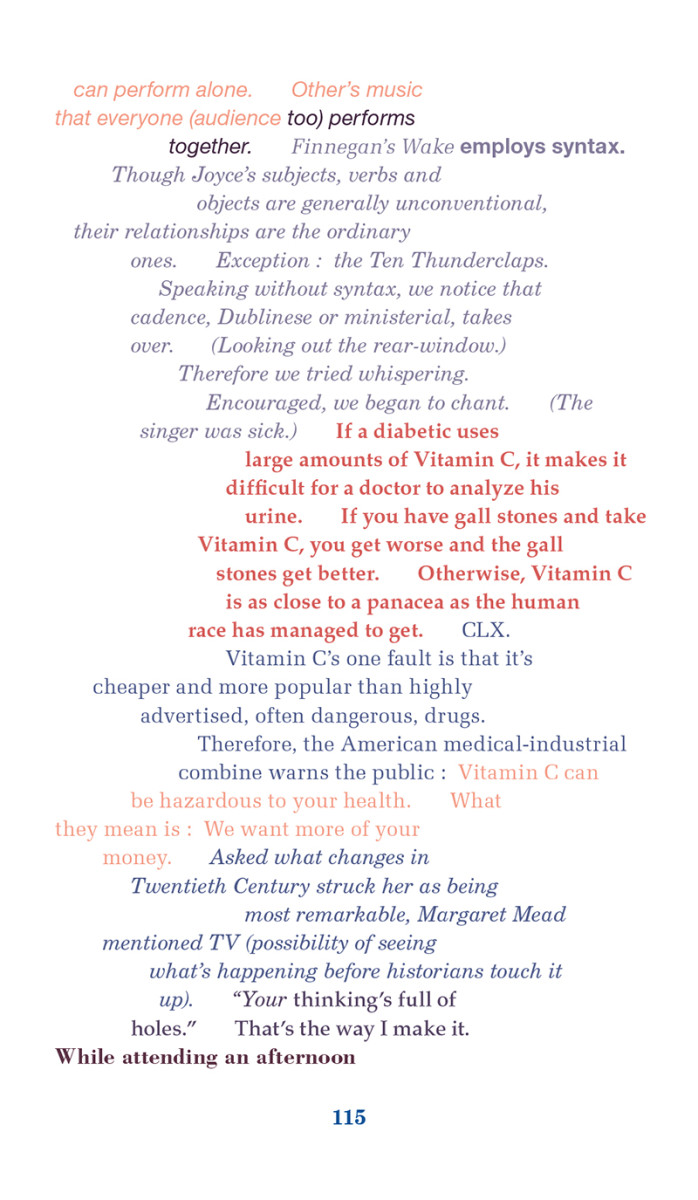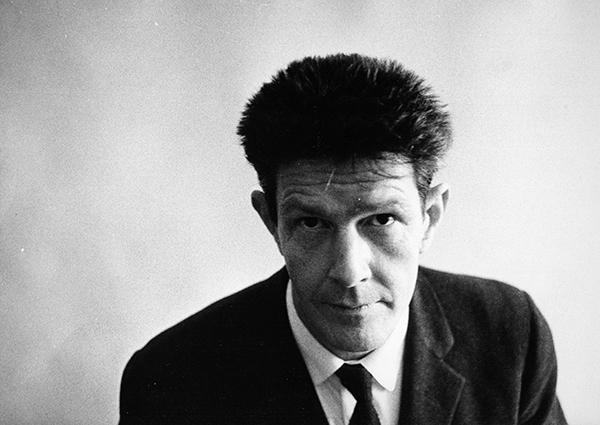
Over his long career, the avant-garde composer, writer, and artist John Cage produced idea-driven, experimental works that pushed the boundaries of every medium—and blurred the lines between them. Cage, who died in 1992 at the age of seventy-nine, is perhaps best known for “4’33”,” a composition consisting of four minutes and thirty-three seconds of silence.
“There is no noise, only sound,” he told an interviewer shortly before his death. “I haven’t heard any sounds that I consider something I don’t want to hear again, with the exception of sounds that frighten us or make us aware of pain. I don’t like meaningful sound. If sound is meaningless, I’m all for it.”
For sixteen years, Cage rigorously developed a piece of art, typed up on an IBM Selectric typewriter. Using the poetic technique of chance operations—which he drew on in his musical compositions as well—Cage determined at random the typeface, word count, indentation, and even, at times, the font color he would employ. In this work he reflected on the current political climate, recalled bits of conversations with friends, and pondered the relationship between art and everyday life. His pages are filled with musings, witticisms, observations, stories, memories, and bits of philosophy that are often at once funny and vehicles of poignant truths.
For the first time, Cage’s piece is being published in full as John Cage: Diary: How to Improve the World (You Will Only Make Matters Worse), co-edited by Joe Biel and Richard Kraft (Siglio Press, October 30). A testament to Cage’s lifelong interest in chance (he was known to toss a coin in order to make decisions about a wide range of things), Diary is a window into the pioneering artist’s innermost thoughts, reflecting the tenor of the time in which he was living and working.
Excerpts from Diary: How to Improve the World (You Will Only Make Matters Worse) by John Cage, edited by Richard Kraft and Joe Biel, Siglio, 2015. Courtesy Siglio and the John Cage Trust.


